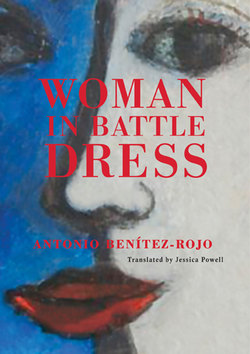Читать книгу Woman in Battle Dress - Antonio Benítez-Rojo - Страница 18
На сайте Литреса книга снята с продажи.
Оглавление7
WHO TODAY EVEN REMEMBERS THE Confederation of the Rhine, that interminable list of tiny states—kingdoms, duchies, grand duchies, principalities and free cities—concocted by an ambitious Napoleon only to evaporate in the wake of his defeat at the Battle of Leipzig? But back in the days when Maryse and I traveled those German cities, the Confederation had just come into being and was a topic of much discussion. Many approved of it. They believed that the alliance with France would shake the dust off the provincialism and bureaucratic torpor of the federated states and have a modernizing effect on public administration, education, and social life. Others, looking toward the future, saw the Confederation as the first step toward a united and powerful Germany, a Germany independent of the influences of Austria and France, destined to play a historic role in Central Europe. But it was not all Franco-German harmony. Here and there, groups of radical patriots criticized the order imposed by Napoleon, an order that required unconditional—and in this they did not exaggerate—political and military support. These Germans, proud of their traditions and inflamed by nationalistic ideas, despised the presence of our soldiers in their cities, considering them unwanted foreigners whom they were obliged to feed and clothe. They looked askance, without distinction—and in this they were mistaken—at everything that came from France, from books and newspapers and social customs, to the arts and fashion. I say this not because the politics of that time interest me in particular, but rather to help you better understand the causes of the tragic episode that would put an end to our time in Germany.
But all that was yet to come. For the time being, we were happily heading north. We were bound for the city of Kassel, having been invited to perform there by an agent of the court of Jérôme Bonaparte, King of Westphalia. We were giddy with excitement because, should the King be pleased with our show, we might secure the possibility of working in France. As we traveled along we sang, memorized lines and rehearsed new numbers in the barns and stables along the way—we had decided that works by Shakespeare and Mozart quartets might not be to a Bonaparte’s liking. We had great hope for our new finale, a kind of operatic ballet that, accompanied by volleys of cannon-fire and the unfurling of flags, would represent the recent triumph of the Battle of Friedland. Françoise, taking on the role of head costume designer, supervised Frau Müller, Claudette, Columbine, the contortionist, the sopranos and the five tightrope walkers who, working industriously on a wagon bench, mended old uniforms we’d bought from a junk peddler. Pierre, for his part, had employed Kosti’s substantial roulette winnings—our stay in Baden-Baden had stretched out over one lucky week—to replace the horses stolen by the gypsies, to pay a backdrop artist to paint a convincing battle scene, and to secure an abundant provision of cheeses and cured meats, as well as three dozen rusty rifles, two drums, a bugle, various sabers and an old Prussian cannon, smelted in the foundries of Frederick the Great, all of which had been abandoned in the fields and collected by the locals.
But the changes went further than those made to our variety show. Maryse, whose romantic encounters had not, since Portelance’s death, been anything more than simple dalliances, was looking with growing fascination at her dashing admirer from Baden-Baden, allowing him to meet up with us along the road and to court her openly. It appeared to be love at first sight: “That man is tremendously attractive,” she’d told me as we were leaving the game room that night, and she had not been soliciting my opinion. The emphasis she’d placed on her words, that emphatic is, had leant her pronouncement a tone of irrefutable truth (to wit: the shortest distance between two points is a straight line). They had eaten breakfast together in the guesthouse the next morning and, while Pierre conducted his business on the outskirts of town, she had suggested, with the buoyancy of an adolescent, that we go on an excursion to a castle set into a nearby mountainside. With some of us riding in the wagons and some on horseback, we arrived at the foothills of the mountain. The path was so steep that it was necessary to go up by donkey. This seemed like an uncomfortable extravagance to the majority of the troupe, most of whom opted to return to town and join Kosti at the roulette table. Those of us remaining at the foot of the mountain were more than sufficient to rent the few available donkeys. Maryse and her admirer, my two suitors and I, were joined by Columbine—whose real name I don’t remember—and one of the Pinelli brothers. Cross-eyed Vincenzo, who portrayed the white-faced Pierrot, was left without a mount, and bid us farewell in sad pantomime.
